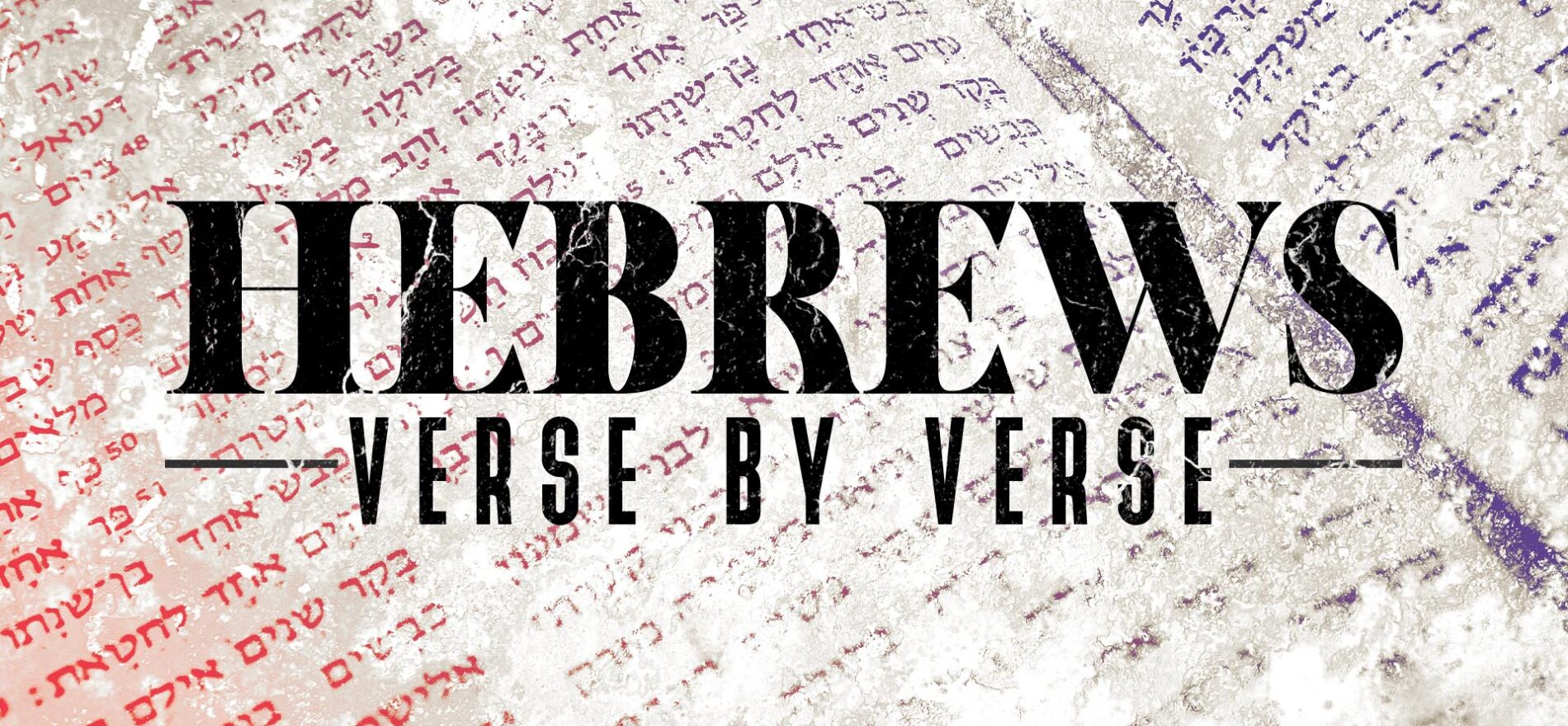This entry in our series will likely be a signpost article that you can bookmark for future reference as we move forward. I probably won’t reexplain these things in the future, but instead, refer you back to this article. This subject is mired in conjecture, traditions, and sometimes plain ridiculous ideas. I hope what we cover will bring clarity and simplicity to the man, the mystery, the legend, Melchizedek. Let’s go.
1 For this Melchizedek, king of Salem, priest of the Most High God, met Abraham returning from the slaughter of the kings and blessed him, 2 and to him Abraham apportioned a tenth part of everything. He is first, by translation of his name, king of righteousness, and then he is also king of Salem, that is, king of peace. 3 He is without father or mother or genealogy, having neither beginning of days nor end of life, but resembling the Son of God he continues a priest forever.
– Hebrews 7:1-3 (ESV)
Apart from Hebrews, Melchizedek only appears twice in the rest of Scripture. First is the passage in Genesis where Abraham encounters him (Genesis 14:18-20). The second is Psalm 110:4, quoted earlier in Hebrews 5:6. By the time you arrive at the first century, Second Temple Judaism (STJ) had developed a spectrum of beliefs concerning Melchizedek. The author’s description is quaint compared to what was circulating on the subject at the time.
Before I go any further, I want to be clear about something. The author of Hebrews gave us a definition for Melchizedek that we can accept as accurate because of the divine inspiration of Scripture. I do not have any qualms with anything said in our passage today. I accept it as truth. However, the author wasn’t all-inclusive in what he wrote. There are things behind the scenes that demonstrate the complexity of translation, which is why – I hope – you appreciate the people who pour their lives into Hebrew and Greek translation. So let’s answer three questions as best we can.
- What does Melchizedek mean?
- What did Melchizedek do?
- Who is the person of Melchizedek?
What Does Melchizedek’s Name Mean?
The author of Hebrews provides a definition: king of righteousness. How did the author arrive at this? The name, Melchizedek, is composed of nouns next to each other. Melchi means king or my king. Zedek means is righteous or righteousness. So you either have king of righteousness or my king is righteous. Those two definitions differ subtly but impact things later as we determine other things. Also, the name itself can be both a personal name or a title. Therefore, Melchizedek could have been an honorific title bestowed upon this man, but his personal name was never revealed. It seems that most scholars lean toward king of righteousness as the author of Hebrews did and that it was his personal name.
The tricky thing is that as I dug deeper, I discovered a few other translations of Melchizedek that would have been congruent with ancient Hebrew and the Semitic context in which he and Abraham lived. Zedek was also the name of a Semitic deity that would have been known to Abraham and Melchizedek. In that case, the name could have meant something entirely different. My king is Zedek would change the whole story. I bring this up to highlight a problem. As you study the Bible, don’t place too much emphasis on word studies. Language is a fluid matter. The Bible was written over the course of 1,500 years, which means the language Abraham and Melchizedek spoke wasn’t the same Hebrew spoken by King David, much less by anyone living in the first century. Language changes quickly over time, and with that, the meanings of words. Word studies can be helpful, but not the end-all, be-all that some people make out of them.
What Did Melchizedek Do?
18 And Melchizedek king of Salem brought out bread and wine. (He was priest of God Most High.)
– Genesis 14:18 (ESV)
This verse is loaded, so let’s address one thing at a time. Melchizedek was the king of Salem. Salem was a Canaanite city in Abraham’s day. The word salem is an English rendering of shalem which means peaceful. If you have any Hebrew exposure, you’ll note that this is rooted in shalom, which means peace. This is why the author said he is the king of peace. This Canaanite city, Salem, will eventually be conquered by King David. In his day, it was called Jerusalem and remains with that name. Much ado has been made about this, which we’ll get to shortly.
He was priest of God Most High (El Elyon). The book of Genesis makes very little of this fact except to state it. But as people who have the complete Word of God, the notion that God was appointing priests before giving the Law is a pretty big deal. Most of Scripture deals with the sons of Levi, whom the LORD appointed as Israel’s priests. Yet, here, hundreds of years before the Law was given, before Levi was ever born, there was one of the LORD’s appointed priests, Melchizedek, in (Jeru)Salem no less.
This completes a picture for us. Melchizedek was a Priest/King. He is the first Priest/King mentioned in Scripture after Adam, whom I contend also held that role before his fall. This creates a parallel that we can trace from Melchizedek to King David to Jesus.
- Melchizedek was both Priest and King of Salem
- David was the King of Jerusalem who did priestly things (a subject that deserves its own post).
- Jesus is both High Priest and King of kings and sets His throne on David’s throne in Jerusalem.
We’ll deal a bit more with this in a moment.
Finally, he gave Abraham bread and wine. Christians everywhere interpret this as a foreshadowing of the LORD’s Supper, which prepackages some presuppositions about the identity of the person of Melchizedek. We’ll get to that in an orderly fashion momentarily. But on the face of things, to Abraham, these were simple provisions. Melchizedek provided a simple meal. That is the foundation of what’s happening here. Anything else is something we read into the text, which may or may not be wrong. All examples of foreshadowing are interpretations read into a text, looking back in light of later events that unfolded.
Primarily, what Melchizedek does here is an act of generosity and blessing to Abraham and his men. Abraham’s response was to give him a tenth of the spoils as an offering to the LORD.
Who Is The Person of Melchizedek?
This is where things get weird. Some of that weirdness is because of verse three.
3 He is without father or mother or genealogy, having neither beginning of days nor end of life, but resembling the Son of God he continues a priest forever.
– Hebrews 7:3 (ESV)
The rest of the weirdness comes from STJ thought (not Scripture). Let’s start with STJs. The Dead Sea Scrolls reveal that some STJ writings believed Melchizedek was divine. Some say Enoch, others say the archangel Michael, while others thought him to be the Son of Man in Daniel 7, making him the Messiah. Christian traditions pick up the STJ speculations and range from him being a forerunner to Jesus to being a Christophany – a pre-incarnate appearance of Christ. The belief that Melchizedek was a pre-incarnate Jesus possibly arose from Gnostic teachings around the 4th century. But, it must be noted that most of these speculations are just that – speculations. Some of them are more like imaginations than speculations. If you take all of the combined references to Melchizedek in the inspired Scriptures, you’ll never conclude that he was Enoch, or the archangel Michael, or the angel of the LORD, or that he was even a divine figure of any sort.
What about Hebrews 7:3? Ok, let’s talk about it. First, don’t cherrypick the verse. Keep reading, and what do you find? A discussion about two priesthoods: Melchizedek’s and Levi’s. Levi’s priesthood was based on who’s your daddy. If you weren’t a descendant of Levi, the Law didn’t permit you to serve as a priest. Now look at verse three: He is without father or mother or genealogy. The author isn’t saying he didn’t have parents; he’s talking about Melchizedek’s priesthood. His priesthood didn’t depend on genealogy. Who’s your daddy didn’t matter. When the author said, having neither beginning of days nor end of life, he was referring to Melchizedek’s priesthood, not his literal lifespan. So, in that, he resembled the Son of God, and his priesthood continues forever.
The word resembled is crucial. That indeed lets us know that Melchizedek was a forerunner to Christ. However, I want to be clear about this. He was not Christ, just someone who resembled him. Now we can look at the things which foreshadowed the Messiah. He reigned in Salem – Jerusalem – which made him king of peace. His name meant king of righteousness. He brought out bread and wine to dine with Abraham, which clearly got a redo with Jesus the night before his crucifixion. Not only was he king, but he was also priest of God Most High, not based on genealogy, but on God’s appointment. He was a king and priest at once, and in that, he foreshadowed Christ’s Priest/King role.
Nothing within the divinely inspired Scriptures would lead us to conclude that Melchizedek was anything more than a mortal man, appointed by the LORD to be His priest in the city of Salem, where he was also king. On this side of history, we can see how he resembled the Messiah and served as a forerunner to His ministry. Anything about his personhood beyond the inspired Word is speculative and without Biblical support. The author of Hebrews embraced this understanding of Melchizedek.
Melchizedek’s Priesthood
4 See how great this man was to whom Abraham the patriarch gave a tenth of the spoils! 5 And those descendants of Levi who receive the priestly office have a commandment in the law to take tithes from the people, that is, from their brothers, though these also are descended from Abraham. 6 But this man who does not have his descent from them received tithes from Abraham and blessed him who had the promises. 7 It is beyond dispute that the inferior is blessed by the superior. 8 In the one case tithes are received by mortal men, but in the other case, by one of whom it is testified that he lives. 9 One might even say that Levi himself, who receives tithes, paid tithes through Abraham, 10 for he was still in the loins of his ancestor when Melchizedek met him.
– Hebrews 7:4-10 (ESV)
The author had a task before him. Remember, he was preaching/writing to believing Jews who were tempted to return to the Law for sanctifying righteousness. So, the task was to demonstrate Melchizedek’s superiority to Levi. If he could do that, returning to an inferior system wouldn’t make sense. How did he do this?
Tithing.
Remember, when building his Biblical case, all the author had to go on was Genesis 14:18-20 and Psalm 110:4. He went in hard on Genesis 14, which is about Abraham’s tithe. What about Abraham’s tithe makes Melchizedek’s priesthood superior to Levi’s? Here are a few observations.
- Abraham tithed to Melchizedek in the absence of any law about tithing. It predates Moses by hundreds of years, so this tithe wasn’t offered out of compulsion or even obedience to a command. It was given from pure gratitude to the LORD.
- The Levites had a command to take tithes from Israel. It was a covenantal condition, and blessing was tied to obedience.
- Because the tithes in the Law were tied to command and obedience, Abraham’s tithe was fundamentally better and superior because it was given freely from gratitude. The argument then follows that a superior gift is offered to a superior priesthood.
This is what is meant by verse seven: It is beyond dispute that the inferior is blessed by the superior. Abraham, the father of Levi, gave a superior offering to Melchizedek. So, when Melchizedek blessed Abraham, Levi, the inferior, was blessed by the superior. Therefore, the author argues in verses nine and ten that Levi participated in this superior tithe through Abraham, making Melchizedek’s priesthood superior to his.
It is a small but strong thread. Now couple that thread with Psalm 110:4. This priesthood, to whom Abraham, and by implication, Levi gratefully gave a tithe, will also rule as king.
1 The LORD says to my Lord:
“Sit at my right hand,
until I make your enemies your footstool.”
2 The LORD sends forth from Zion
your mighty scepter.
Rule in the midst of your enemies!
3 Your people will offer themselves freely
on the day of your power,
in holy garments;
from the womb of the morning,
the dew of your youth will be yours.
4 The LORD has sworn
and will not change his mind,
“You are a priest forever
after the order of Melchizedek.”
– Psalm 110:1-4 (ESV)
The priestly order of Melchizedek was given to the Davidic kings. The author has already dropped the knowledge that Jesus Christ, the Son of Man, the Son of God, and the Son of David, is a priest in the order of Melchizedek. This priesthood is far superior to Levi at every level. But here’s the surprise ending.
Because Jesus Christ is our High Priest in the order of Melchizedek, you and I are also priests in that same order. I am a priest in the order of Melchizedek because it is no longer I who lives, but Christ who lives in me by the Holy Spirit. If you belong to Jesus, so are you. Christ’s priesthood provides and empowers our priesthood. His order is our order.
I’ll be transparent as I close. This examination of Melchizedek was fascinating, to say the least, but it actually impacted me more in the area of tithing. Look for a post about that soon. Aside from that, this man gave us a footprint of what we could expect from the Messiah. And Jesus Christ filled that footprint perfectly and then some. The remainder of chapter seven contains the author’s comparison between Jesus and Melchizedek, which will be a foundation to begin speaking about a better covenant in chapter eight. I hope you’re sticking with me and that this has been as fascinating for you as it was for me.








[…] studying Melchizedek, it was almost impossible to not think about tithing. The very first tithe ever mentioned in […]